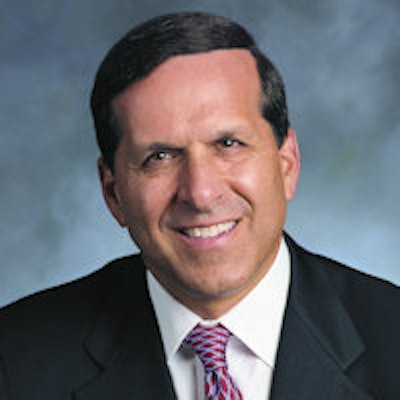
In the past 30 years, many clients have asked our consultants, "Am I ready to take on an associate?"
 Roger P. Levin, DDS, founder and CEO of practice management consulting firm Levin Group.
Roger P. Levin, DDS, founder and CEO of practice management consulting firm Levin Group.More often than not, we've had to say, "No." The conditions have to be right for an associateship to work for both parties, so most dentists must prepare themselves and their practices for this critical step.
Each situation is unique, but the criteria for success, while multifaceted, are the same in every case:
- Managerial
- Financial
- Legal
- Cultural
- Psychological
Simply put, if you're unprepared in any of these areas, you're not ready for an associate. Let's look at each specifically.
What you need is new management systems
You're so busy that you and your staff are exhausted every day. As stress levels rise, your enjoyment of dentistry plunges. If only you had another doctor -- an associate -- to take some of this workload off your hands.
“The problem is often that your management systems are inefficient.”
Unfortunately, revenues aren't keeping pace with your busyness. The problem is often that your management systems are inefficient, subjecting you and your staff to excessive stress and strain. You need new systems rather than an associate.
Implement those and you'll see that your practice actually has the capacity for much more production -- without the extreme busyness or stress. When you reach the limit of what you can produce as a doctor, even with excellent systems in place, you'll be ready -- and have sufficient revenues -- to take on an associate.
Financial and retirement
You've always dreamed of retiring early, and you just turned 50. Time to bring in a new doctor who will become your partner and soon buy you out.
The Great Recession or other types of setbacks have wrecked many dentists' retirement dreams. Some doctors think that an associate will speed up practice growth and subsequent personal income.
If you're thinking this way, think again.
Initially and perhaps for quite some time, an additional doctor will raise practice overhead and leave less for you to take as income. Many doctor owners who fail to realize this end up delaying their retirement. They may even decide to terminate the associate, creating animosity, new and potentially aggressive competition, and perhaps even legal action. Focus on your financial picture rather than your retirement dream.
Legal: Restrictive covenants
You understand that agreements with associates don't always work out and that disgruntled doctors may try to take patients or staff away from your practice, but you have the protection of a restrictive covenant.
Some states don't recognize restrictive covenants and, even in those that do, cases are rarely black and white. If an associate feels that you were misleading about selling him or her your practice, that you are taking too long to offer partnership, or that your expectations are otherwise unrealistic, the covenant may not help you at all. Even if it does limit what a former associate can do, it cannot prevent that doctor from becoming a major disruption for you and your practice.
Cultural: Your team
You have an excellent team: well-trained, hard-working, and loyal. When the new associate arrives at the practice, you know you can count on your staff to help make it a smooth shift to a two-doctor practice.
Your practice has a distinctive culture, and the stronger it is, the more difficult it can be for an outsider to fit in or be accepted. Staff loyalty to you may translate into a negative attitude toward the new doctor. For example, Levin Group consultants have heard numerous stories of staff members sending all new patients to the doctor owner and other actions that set up associates for failure.
Before bringing in a new associate, you must spend time preparing your team for the impending change. Make them understand that if the associate is not successfully integrated into the practice, you, the practice, and they will all suffer the consequences.
Psychology and chemistry
The new doctor has excellent credentials, shows a great deal of energy and enthusiasm, and seems to be a nice person. It seems like a good fit.
Many doctor owners only meet a prospective associate only once or twice before deciding to offer a partnership. This can have disastrous consequences.
You must take the time to delve into the associate's goals, work habits, leadership skills, and lifestyle before making such an important decision. You need to get a clear picture of who this person really is and what he or she will be like to work with.
At the same time, the candidate deserves an opportunity to size up you, your team, and your practice. If both parties can make a decision with their eyes wide open, the chances of success of will be greatly enhanced.
Don't leave anything to chance
Are you ready for an associate? Before you can answer that question, you must review the above criteria carefully and objectively. It's far too important a decision to leave anything to chance.
Roger P. Levin, DDS, is the founder and CEO of practice management consulting firm Levin Group. If you are considering a transition, make an informed decision with the help of Levin Group's Transition Services at 888-973-0000.
The comments and observations expressed herein do not necessarily reflect the opinions of DrBicuspid.com, nor should they be construed as an endorsement or admonishment of any particular idea, vendor, or organization.



















